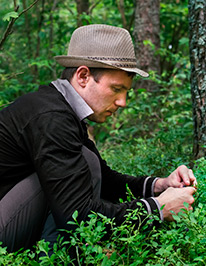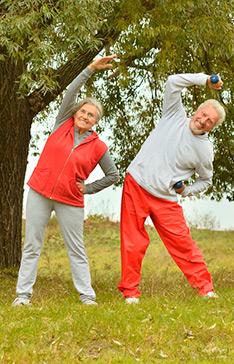Fashion for a variety of power system as changeable as any other. Today more and more often hear about the paleo diet or Stone age diet. But whether it is suitable to modern man? Experts still argue.

Who invented the paleo diet?
The author of the paleo diet is often called the German gastroenterologist Walter L. Voegtlin. In 1975 he published the book “Stone age Diet: Based on a thorough study of the ecology and human diet”. In it, he recalled that in fact man is a predator, and in the past its staple diet was meat and fats, and carbohydrates he consumed relatively little. The scientist did not exclude that such a diet is most healthy.
The basic principles of paleo diet

Adherents of the paleo food say that we can try to replicate the diet of people who lived during the Paleolithic. Then agriculture was not there, so people ate whatever they could take from nature. The basis of the diet was meat, fish, nuts, fruits and plants that people found, but not cultivated.
Diet paleo diet: what can
- Meat. If you are strict follower of paleo, the meat of wild animals and birds. If you are adapting the system to the requirements of the time, you can have beef and pork, but the animals should be grown on natural food
- Eggs
- Sea and river fish, not specially grown and harvested in natural waters
- Wild nuts and seeds
- Fruits and vegetables grown without the use of fertilizers
- Sea salt, dried herbs as seasonings
- Vegetable oils of avocado, olive, coconut, walnut
- Mushrooms
- Water, herbal teas, coconut milk
Diet paleo diet: what not
- milk and dairy products
- bread, grains and cereals (although some scientists believe that during the Paleolithic cereal was already in the diet, so that you can make yourself a little slack)
- legumes
- potatoes (you can substitute yams)
- sugar (use natural sweeteners such as honey)
- food, fast food, any refined or canned food
Mode paleo-nutrition
Supporters of the “paleontological” power suggest not only to bring our diet to the diet of their ancestors, but also to adjust the diet and activity. In particular, there is a moderately (although the portion size is not restricted) and only when you feel hunger. Not to stay on the couch: our ancestors could not afford to do so. Ideally, physical activity should exceed the time we spend on the meal.

Paleontological fitness
Over time, paleo diet for many has ceased to be just a power supply system and became a system of life. That is why today there is even a special kind of fitness – MovNat (paleontological or evolutionary fitness). Author Erwan Le Corre has created a system of exercises based on the movements of the person in natural conditions. MovNat includes items such as walking running jumping, balancing, crawling, climbing, swimming, strokes, seizures, etc.
Paleo diet: pros
Despite the fact that the paleo diet is controversial, it is recognized and unquestionable advantages. For example, this exception from the diet of refined foods, fast food, carbonated drinks, “fast” carbs. All these products usually have a negative impact on the body. However, nobody prevents us and so remove them from our menu.
Paleo diet: doubt
Scientists rightly point out that since the time of Paleolithic man and his digestive system has changed.

For example, the paleo diet does not involve drinking the milk. Ancient people could not digest the enzyme lactase that breaks down milk, worked out they only have up to 5 years. In modern humans as a result of various mutations of this enzyme persists into adulthood, so we can drink milk.
This and other examples make us doubt that paleo diet is really suitable to modern man. Maybe her time passed?
Paleo diet: cons
Scientists point to a number of moments paleo diet, which can pose a serious threat to health. First, the large amount of protein that affects the kidneys. Secondly, (if you follow all the rules) in the diet contains large amounts of coarse fibers that are hard to digest, for this to be the appropriate bacteria. Thirdly, it is likely that paleo diet really contributed to the improvement, the person needs to return to the life of distant ancestors. And that, unfortunately or fortunately, is impossible.
